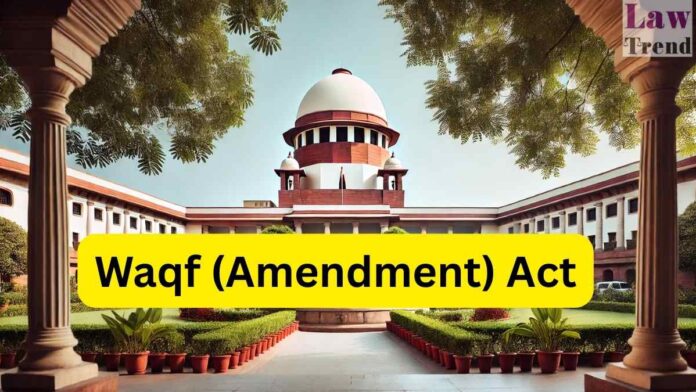The Supreme Court on Thursday recorded the Union government’s assurance that no waqf properties would be denotified, and no appointments would be made to the Central Waqf Council or State Waqf Boards, until the next date of hearing in the matter challenging the constitutional validity of the Waqf (Amendment) Act, 2025.
A three-judge Bench comprising Chief Justice of India Sanjiv Khanna, Justice P.V. Sanjay Kumar, and Justice K.V. Viswanathan was hearing a batch of petitions questioning the recently enacted amendments, which allow for inclusion of non-Muslims in key waqf bodies and empower the state to alter the status of disputed waqf lands.
During the proceedings, Solicitor General Tushar Mehta, appearing for the Centre, informed the Court that no waqf properties—especially those already recognized by courts—would be denotified before the next hearing scheduled on May 5, 2025. He further stated that no appointments under Sections 9 and 14 of the amended Act would be made to the Waqf Council or the Boards in the interim.
The Court took note of this assurance and also granted the Centre one week’s time to file its response to the constitutional challenges raised against the legislation.
Background of the Case
The Waqf (Amendment) Act, 2025, which received presidential assent on April 5, 2025, has drawn widespread legal and public scrutiny. The petitions contend that the creation, management, and administration of waqfs form an essential part of Islamic religious practice and are protected under the Constitution.
Key concerns raised by the petitioners include:
- The derecognition of the “waqf-by-user” category of properties.
- The inclusion of non-Muslim members in the Central Waqf Council and State Waqf Boards.
- The discretionary state power to change the status of disputed waqf properties.
In defence, the Centre maintains that the amendments aim to increase transparency and accountability in waqf governance.
The CJI voiced apprehension about the potential consequences of the amended provisions, remarking:
“Normally, it is rare to stay a statute, but we are apprehensive that the situation could change drastically.”
Solicitor General Mehta urged the Bench to refrain from imposing a stay, stating that such a move would be a “harsh step.”
To manage the volume of submissions, the Court also directed that not more than five petitioners would argue the matter and asked both sides to appoint a nodal counsel. Additionally, on Mr. Mehta’s suggestion, the Bench ordered that the case title be modified to “In re: Waqf (Amendment) Act, 2025”, in order to prevent the filing of multiple similar petitions.
Key Directions of the Court
- No waqf property will be denotified until the next hearing on May 5, 2025.
- No appointments will be made to the Central Waqf Council or State Waqf Boards during this interim period.
- Centre to file its response within a week.
- The Court will hear the matter next on May 5.




